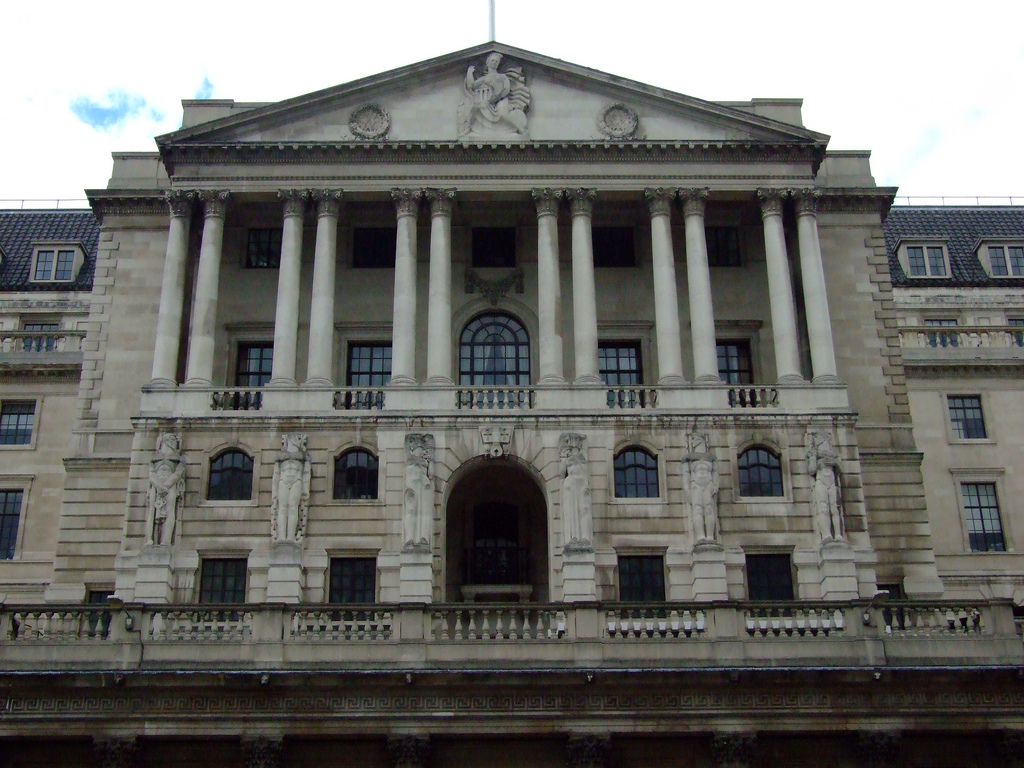News
Bank of England committee split over base rate hold decision

The Bank of England’s Monetary Policy Committee (MPC) has voted to hold the base rate at the record low level of 0.25%, causing the pound to fall one cent against the dollar to trade at 1.3147.
The MPC was split six-two over the decision as it seeks to meet its 2% inflation target. Ian McCafferty and Michael Saunders voted for the rise.
The split follows a division in June, when three committee members voted to raise the rate. One of the three has since left the committee. However, all members have agreed that any increases in the bank rate will be gradual and limited.
The bank also downgraded its forecast for UK economic growth for 2017 from 1.9% to 1.7%, following disappointing GDP growth in the first and second quarters of this year, of 0.2% and 0.3% respectively.
Minutes of the MPC meeting read: “In the MPC’s central forecast, GDP growth remains sluggish in the near-term as the squeeze on households’ real incomes continues to weigh on consumption.
“The MPC expects inflation to rise further in coming months and to peak around 3% in October, as the past depreciation of sterling continues to pass through to consumer prices. Conditional on the current market yield curve, inflation is projected to remain above the MPC’s target throughout the forecast period. This overshoot reflects entirely the effects of the referendum-related falls in sterling.”
The committee voted to maintain its levels of government and corporate bond purchases at £435bn and £10bn respectively. However, it has signalled the end of the Term Funding Scheme, designed to make cheap money available to banks.
Many more years of poor cash returns
Laith Khalaf, senior analyst at Hargreaves Lansdown, said: “The UK economy is faltering and consumer purses are under pressure, so it’s no surprise the Bank of England has decided not to upset the apple cart by raising interest rates. June also saw a surprise drop in inflation, relieving pressure on the central bank to tighten policy.
“However, consumer borrowing still looks to be building up, and has now breached the £200 billion mark for the first time since 2008. Meanwhile the FCA is warning that 2.2 million borrowers are in financial distress, despite ultra-low interest rates, which means the Bank of England is going to have to remove the sticking plaster of loose monetary policy very slowly indeed.
“Unfortunately that spells many more years of poor returns for cash savers. The Office for Budget Responsibility thinks interest rates will rise to just 1% by 2022, still below the rate of inflation, assuming the Bank of England meets its 2% CPI target. Cash savers who have been clinging on in the hope of higher rates will probably find they have to travel further than expected to get to the pot of gold at the end of the rainbow. Even when they get there, they may find only a few coppers to rub together after inflation has taken its toll.”
Tom Stevenson, investment director for personal ivesting at Fidelity International, added: “At the risk of sounding like a cracked record, cash remains trash in today’s environment. With this in mind, anyone with savings still sitting in cash will continue to struggle to generate a real return.
“If anyone is still unsure about the benefits of investing in stocks and shares over saving in cash then our calculations show that if you had invested £15,000 into the FTSE All Share index over the past ten years you would now be left with £25,270. If, however, you had invested £15,000 into the average UK savings account over the same period, you would be left with a paltry £15,691. That’s a difference of £9,579.”